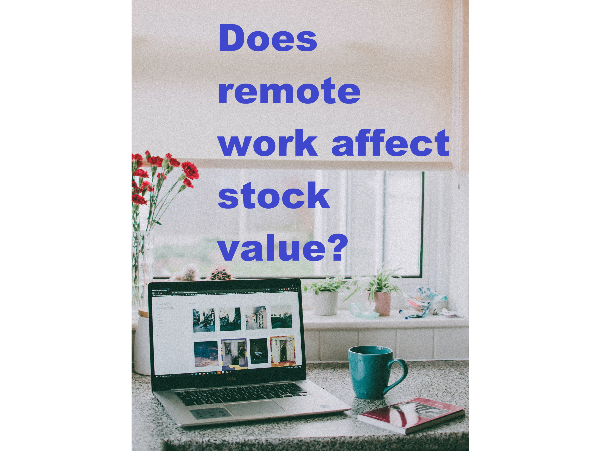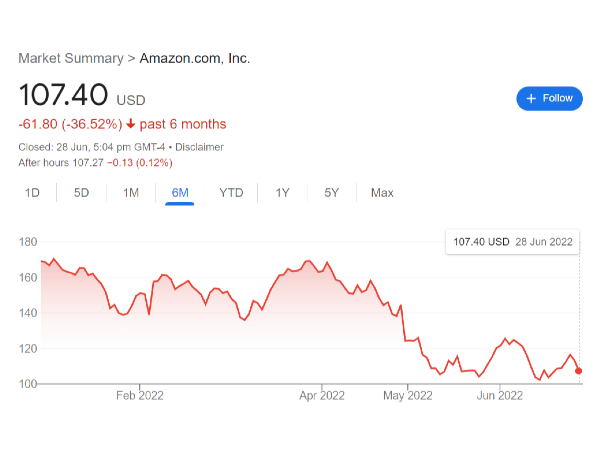With Covid - hopefully - in the rearview mirror, the debate over remote work, also known as work from home, has been raging. Not surprisingly, many who got to work remotely during Covid are not always eager to return to the office. But some industry leaders, especially famous mega-billionaire Elon Musk, are insisting that workers need to show up in-person. When remote workers begrudgingly returned to Tesla's offices, they discovered a lack of desks and parking spaces, amplifying the debate further. Do companies that allow remote work have an advantage in share value?
Does Remote Work Lower Costs?
Office space and maintenance costs money, so it's little surprise that many employers have found remote work to save them money. Allowing a substantial percent of office workers to work from home means less spending on rent, cleaning services, and any "office perks" like snacks and drinks. Companies that allow remote work are likely to enjoy reduced costs of production, which can lead to greater net income.
What About Productivity?
This is the big question! Sure, remote work lets companies save money on office space and related costs, but do workers work as well if allowed to stay home? Results are mixed. Some office jobs, such as those in finance and accounting, may see an increase in overall productivity as workers enjoy avoiding long commutes, dealing with office drama, and having more flexible hours. However, industries that require more creativity and collaboration among office workers may suffer in the long run as this collaboration is more difficult to accomplish over Zoom or Google Meets.
If the job mostly involves crunching numbers, remote work may boost productivity. But if the job involves a strong interpersonal element, such as marketing, sales, or consulting, be cautious. A firm that does "creative" work but has generous work-from-home policies may suffer a reduction in innovation over time. But corporations whose office workers are number-crunchers will likely see share value gains from remote work.
What Workers Want
Productivity stats aside, corporations need to be able to attract talent. And the tiebreaker may be that white collar employees want the option of working remotely. A strong majority of workers who can work remotely wish to continue doing so, and may look to move to companies that offer this option if their current employers pull the plug on work-from-home policies. Therefore, even if working from home is not quite as productive as being in the office (in an apples-to-apples comparison), firms that allow remote work may attract top talent over rivals that do not.
Bottom Line: Be Wary of Corporations That Reject Remote Work Policies
While Elon Musk may not be wrong in that some work-from-home employees are not exactly crushing it in terms of productivity, firms that are looking for top talent in their respective fields should not ignore the desires of workers. The Great Resignation of 2020-2022 has revealed that disgruntled workers are not nearly as hesitant to jump ship as they were before Covid. Younger workers who are more comfortable with remote work will likely be quicker to resign from jobs that require them to return to the office, causing a talent drain. Corporations that insist on everyone being in the office may end up with those who work harder...but is that the same as working smarter?
Investment Tip: Avoid Office REITs
Real Estate Investment Trusts (REITs) allow investors to buy shares in a pool of rent-paying investments. There are REITs for all types of rented and leased properties, including office complexes. Not surprisingly, office REITs have taken a hit since the Covid shutdown, as firms drastically reduced their demand for office space. And, with work-from-home policies likely to remain permanent for many firms, total demand for office space will remain depressed. Just like the decline of shopping malls, office complexes may also begin to fade away.
I/we have no positions in any asset mentioned, and no plans to initiate any positions for the next 7 days




























With Covid - hopefully - in the rearview mirror, the debate over remote work, also known as work from home, has been raging. Not surprisingly, many who got to work remotely during Covid are not always eager to return to the office. But some industry leaders, especially famous mega-billionaire Elon Musk, are insisting that workers need to show up in-person. When remote workers begrudgingly returned to Tesla's offices, they discovered a lack of desks and parking spaces, amplifying the debate further. Do companies that allow remote work have an advantage in share value?
Does Remote Work Lower Costs?
Office space and maintenance costs money, so it's little surprise that many employers have found remote work to save them money. Allowing a substantial percent of office workers to work from home means less spending on rent, cleaning services, and any "office perks" like snacks and drinks. Companies that allow remote work are likely to enjoy reduced costs of production, which can lead to greater net income.
What About Productivity?
This is the big question! Sure, remote work lets companies save money on office space and related costs, but do workers work as well if allowed to stay home? Results are mixed. Some office jobs, such as those in finance and accounting, may see an increase in overall productivity as workers enjoy avoiding long commutes, dealing with office drama, and having more flexible hours. However, industries that require more creativity and collaboration among office workers may suffer in the long run as this collaboration is more difficult to accomplish over Zoom or Google Meets.
If the job mostly involves crunching numbers, remote work may boost productivity. But if the job involves a strong interpersonal element, such as marketing, sales, or consulting, be cautious. A firm that does "creative" work but has generous work-from-home policies may suffer a reduction in innovation over time. But corporations whose office workers are number-crunchers will likely see share value gains from remote work.
What Workers Want
Productivity stats aside, corporations need to be able to attract talent. And the tiebreaker may be that white collar employees want the option of working remotely. A strong majority of workers who can work remotely wish to continue doing so, and may look to move to companies that offer this option if their current employers pull the plug on work-from-home policies. Therefore, even if working from home is not quite as productive as being in the office (in an apples-to-apples comparison), firms that allow remote work may attract top talent over rivals that do not.
Bottom Line: Be Wary of Corporations That Reject Remote Work Policies
While Elon Musk may not be wrong in that some work-from-home employees are not exactly crushing it in terms of productivity, firms that are looking for top talent in their respective fields should not ignore the desires of workers. The Great Resignation of 2020-2022 has revealed that disgruntled workers are not nearly as hesitant to jump ship as they were before Covid. Younger workers who are more comfortable with remote work will likely be quicker to resign from jobs that require them to return to the office, causing a talent drain. Corporations that insist on everyone being in the office may end up with those who work harder...but is that the same as working smarter?
Investment Tip: Avoid Office REITs
Real Estate Investment Trusts (REITs) allow investors to buy shares in a pool of rent-paying investments. There are REITs for all types of rented and leased properties, including office complexes. Not surprisingly, office REITs have taken a hit since the Covid shutdown, as firms drastically reduced their demand for office space. And, with work-from-home policies likely to remain permanent for many firms, total demand for office space will remain depressed. Just like the decline of shopping malls, office complexes may also begin to fade away.
I/we have no positions in any asset mentioned, and no plans to initiate any positions for the next 7 days